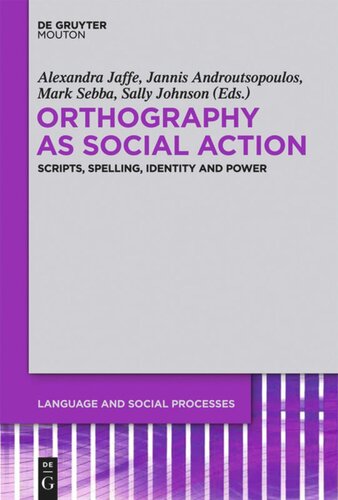

Most ebook files are in PDF format, so you can easily read them using various software such as Foxit Reader or directly on the Google Chrome browser.
Some ebook files are released by publishers in other formats such as .awz, .mobi, .epub, .fb2, etc. You may need to install specific software to read these formats on mobile/PC, such as Calibre.
Please read the tutorial at this link: https://ebookbell.com/faq
We offer FREE conversion to the popular formats you request; however, this may take some time. Therefore, right after payment, please email us, and we will try to provide the service as quickly as possible.
For some exceptional file formats or broken links (if any), please refrain from opening any disputes. Instead, email us first, and we will try to assist within a maximum of 6 hours.
EbookBell Team

4.3
78 reviewsThe chapters in this edited volume explore the sociolinguistic implications of orthographic and scriptural practices in a diverse range of communicative contexts, ranging from schoolrooms to internet discussion boards. The focus is on the way that scriptural practices both index and constitute social hierarchies, identities and relationships and in some cases, become the focus for public language ideological debates. Capitalizing on the now robust body of literature on orthographic choice and debate in sociolinguistics and anthropological linguistics, the volume addresses a number of cross-cutting themes that connect orthographic practices to areas of contemporary interest in sociolinguistics and linguistic anthropology. These themes include: the different social implications of self vs. other representation and the permeability of the personal/social and the public/private; how scriptural practices ("inscription") serve as sites for social discipline; the historical and intertextual frameworks for the meaning potentials of orthographic choice (relating to issues of genre and style); and writing as a broader semiotic field: the visual and esthetic dimensions of texts and metalinguistic "play" in spelling and its ambiguous implications for writer stance.